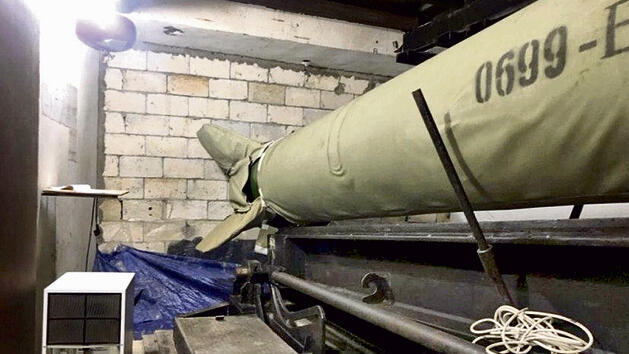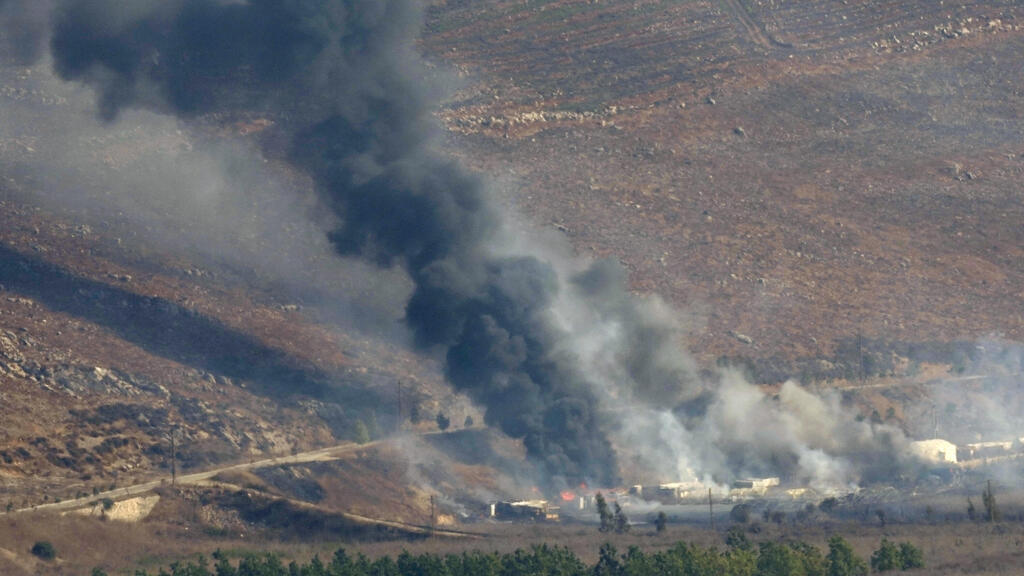Getting your Trinity Audio player ready...
The IDF on Monday, saw its most successful operational day since October 7. The damage inflicted on Hezbollah’s capabilities—including its armaments, their strength, and precision—was among the most effective operations Israel has conducted in Lebanon since Hezbollah’s establishment.
The political leadership initiated a round of understandable bravado, culminating in Prime Minister Benjamin Netanyahu hinting at the possibility of directly targeting Hassan Nasrallah.
These operational successes, which some in the defense establishment have compared to the "Moked" operation during the Six-Day War when the entire air force fleets of Arab armies were destroyed, result from years of preparation.
The IDF has been gearing up for a third Lebanon War for an entire generation. While it was unprepared for an invasion from Hamas in the south, it had indeed anticipated and trained for a potential incursion by Hezbollah in the north. Israel’s intelligence penetration is becoming increasingly evident. These successes have significantly reduced Hezbollah's ability to make life hell for Israelis.
Defense Minister Gallant said that tens of thousands of rockets had been destroyed. While the internal distribution of these armaments is important, the numbers indicate a severe blow to Iran's most strategic arm.
For many years, the regime in Tehran had nurtured various threats against Israel. While Hamas was a concern, it was a minor player compared to the central threat of Hezbollah. The Iranian attack in April highlighted the limitations of Iran’s capabilities and Tehran's reliance on its Lebanese ally—a crucial player not entirely subordinate to it.
In addition to the elimination of hardware, Hezbollah's leadership has also been severely diminished. Nasrallah is now effectively isolated, with most of his senior command neutralized and his communications capabilities restricted. “It will take a few more days,” a security source told me, “but we’ve taken a significant step toward a different Middle East, where Hezbollah appears completely changed and weakened.” The two strategic threats Hezbollah had constructed—its precision missile project and the potential for an incursion into the Galilee—have been impaired.
So far, this is the good news. However, no one among security officials knows how to translate these brilliant operational achievements into strategic and political gains or a true victory that would end the war in the north.
Hezbollah still possesses the capability to strike central Israel and inflict serious blows. Half of its arsenal remains intact, giving it ample opportunity to harm Israel significantly. Like Sinwar, Nasrallah doesn't need much to continue the conflict; a periodic anti-tank missile launch across the northern border is enough to keep the war alive.
Israel can escalate its actions and weaken Hezbollah considerably, but as long as the Iran proxy retains any firing capability, the northern border cannot return to normalcy, and residents cannot feel safe. Discussions of a new security buffer zone will not necessarily resolve this issue.
Another critical question is how Iran and its affiliates will respond; they are likely in shock. The mullahs in Tehran are not expected to easily relinquish their crucial Lebanese Shiite asset, which they have painstakingly refined over the years.
The key question remains: How will the IDF's brilliant achievements be leveraged to create a genuine resolution? The reason behind the ongoing smear campaign against the IDF by political figures close to the prime minister is straightforward: Time and again during the war, the defense establishment has delivered better results than the political leadership. This doesn’t mean it has necessarily achieved outstanding results on its own, but it has performed significantly better. What political or diplomatic achievement has emerged from this war since its inception? What plan has the region or the world agreed upon? Aside from the initial hostage deal, no such diplomatic achievement exists.
Hezbollah may retreat from its aggressive stance on its own, and agree to separate the southern front from the northern one. However, at this moment, most Western intelligence sources believe the chances of this happening are limited. Israel's successes could translate into a strategic turning point in its favor, but that depends not only on the IDF.




